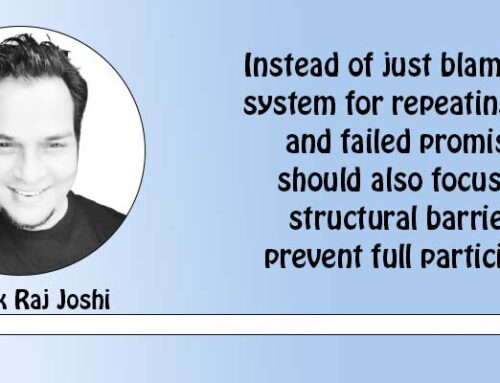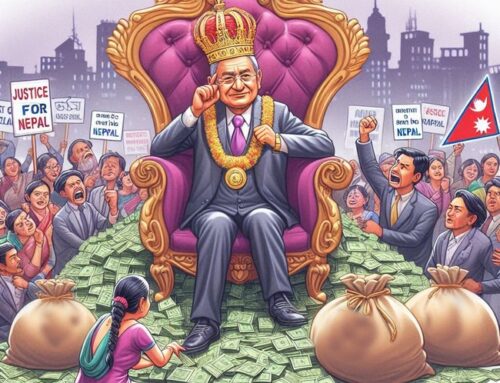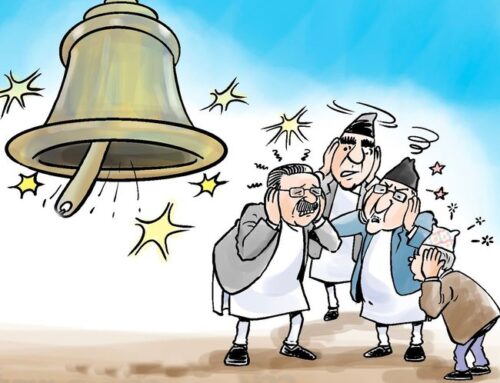Which Comes First: Poverty Or Corruption?
Poverty is a complex phenomenon that admits more than one definition and one scale of measurement. Normally, we understand poverty as the condition in which people do not have enough resources to adequately meet their basic needs – food, clothing, housing, education and health, among others.
The issue has seemed to be the key factor for it is obvious that the bases for a country’s development are sound economic policies and credible and stable institutions, together with a favorable geography.
We are faced with the dilemma of what comes before, eggs or chicken. A country with a weak economic system can hardly have effective institutions that can sustain the system. This generates corruption and as a consequence it weakens the entire nation and its economic performance. It will take several generations to get rid of this self-destructive situation.
Rich countries are rich because they usually have good economic policies and credible and stable institutions. Without quality education, countries get stuck in a limbo and will fail to impart technical, moral and ethical training to their people. Educated citizens gradually raise the level of institutions and services. They can choose their political representatives better and demand performance from their political authorities. This is a slow process, which in some cases will take many decades and in others, will be almost impossible as resources are squandered in wrong educational strategies coupled with mismanagement and implementation from unprofessional and untrained staff.
When you go out into the streets and ask people as to what factors you would consider to be the cause of backwardness of Nepal, corruption is inevitably mentioned, especially the kind promoted by politicians and public officials. Corruption is one of the reasons why sustainable growth has not been achieved in the country.
The main challenge to eradicate poverty is corruption. Eradicate corruption and you will eradicate poverty. One of my students asked me: “Why is our country so bad? Why does the economy not grow? Why are there no jobs?”
More than clarifying the reasons for growth of poverty in our country, what must be explained is the absence of wealth as poverty is natural. Mankind was born poor, but poverty diminishes as wealth grows. We are poor in a rich country. It is the question that we ask thousands of Nepalese and foreigners, when observing, recognizing and admiring an extraordinarily rich and diverse country. We must start by making a fundamental distinction. Nepal is not a poor country, it is a country impoverished people, as a result of corruption, favoritism and lack of policy implementation.
Nepal is currently viewed from two very contradictory perspectives. We are considered to be one of the countries with the greatest growth potential but on the other hand, we are one of the countries with the greatest levels of inequalities, political instability and corruption. We remain a poor country in many respects. We are poor in ideas, poor in development, poor in education, poor in income but rich in corruption, delinquency, selfishness and envy.
Why corruption is considered such an important problem in relation to poverty? Undoubtedly, because of its consequences. The misuse of resources and the continuous daylight robberies translate into a great opportunities cost and the possibility of having used those monies in investments would have benefitted the society in general. In addition, corruption impedes establishing relationships of trust, which in time translates into difficulties in reaching agreements and reaching consensus. The culture of easy money is due to social ignorance, lack of civic responsibility, social justice, politicking, patronage and indiscipline and lack of sense of social cohesion etc. It is a lack of education in social responsibility — lack of moral values lead to corruption. Poverty is a consequence of social irresponsibility. It enhances the feeling of helplessness and hopelessness of the people in front of a state that does not represent solutions or social development for any of the Nepalese. It is not academic education but an education in political consciousness and civilism that promotes a citizen’s awareness.
There is corruption at all levels. Misuse or abuse of positions of trust and power for private gain at the expense of the collective interest of the people are rampant at every level of the society.
There is often a hypothesis about the consequences and determinants of corruption. It is said that there is a relationship between poverty and economic growth. According to this, corruption has a negative relationship with economic growth (as growth grows, corruption decreases), but directly with poverty (if corruption increases, poverty increases). Therefore it would be wise to say that political and bureaucratic corruption is the cause and poverty is the effect.
The major problem of Nepal is entrenched in the negative values rooted in its culture. Social ignorance, lack of civic responsibility, social importance and lack of sense of social cohesion are some of the major problems. It is lack of education of social responsibility and lack of values that leads to corruption. Poverty is a consequence of all of this. Without education, there is no way for citizens to generate a civil revolution to overthrow their rulers, revoke the congress, annul the votes and abstain from electoral participation or boycott goods.
The schools transmitted by the leaders of corruption have succeeded in ensuring that those belonging to the poverty groups forget their moral principles because they also have the right to a dignified life. The main actors in the transmission of values and in human qualities have disappeared strangely and moralistic scholars no longer exist and humanitarian researchers do not lift their fingers and for educators and teachers, the definition of ethics can only be read in dictionaries and large encyclopedias.
Corruption is part of the mental configuration of the Nepalese. We admire rapid enrichment, lawful or otherwise. Who is more corrupt? The person who proposes a gift in exchange for an exclusive favor and for personal benefit or the person who receives it to favor its proponent exclusively? So, what can be the cause of the persistence of corruption in our country? Are we corrupt because we are poor or are we poor because we are corrupt?
Joshi is a lecturer, IT consultant and he can be reached by email at [email protected]
Issue Name : Vol.10, No 13, February 24, 2017 (Falgun 11, 2073)
http://www.spotlightnepal.com/News/Article/Which-Comes-First-Poverty-Or-Corruption-Nepal




